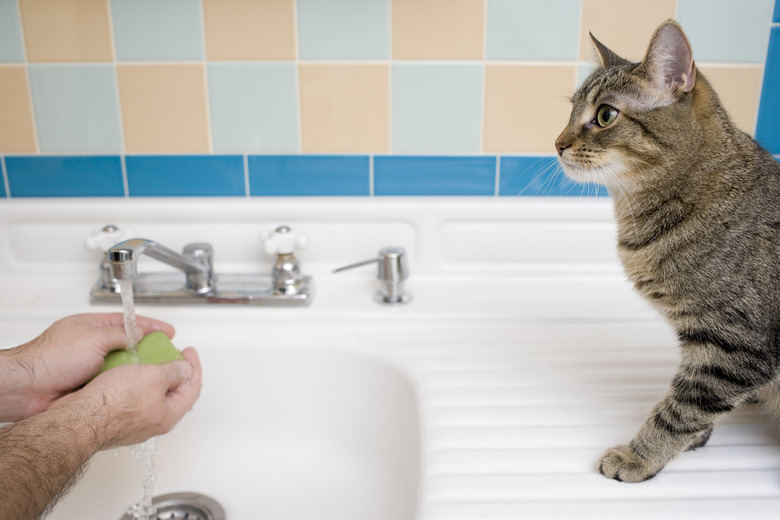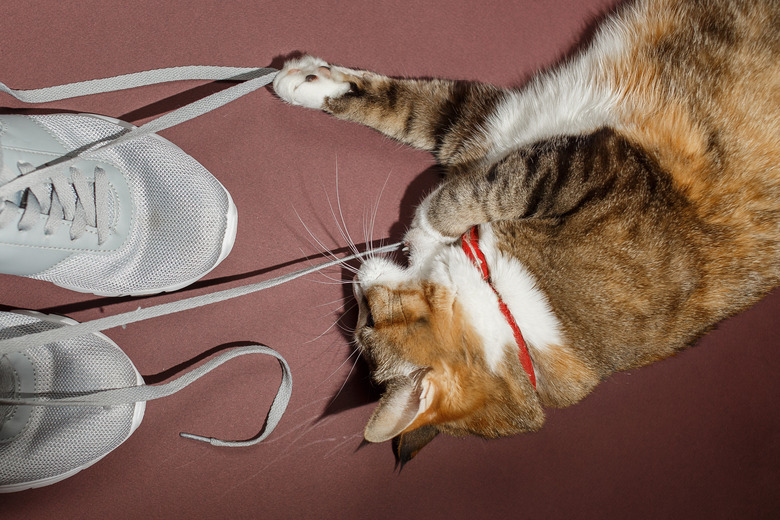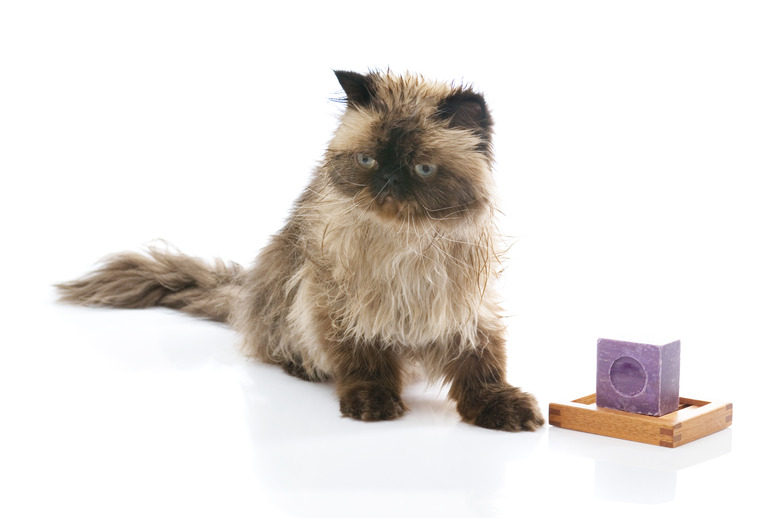Why Is My Cat Eating Soap?
Any cat owner will be the first to tell you that felines are a special bunch with an almost endless array of funny quirks — batting objects off of countertops, running up the walls, taking a nap in the bathroom sink, or even taking a bite out of a bar of soap.
Some of these behaviors can be attributed to boredom or simple preferences, while others, like soap eating, can be a sign of a more serious issue. If you've noticed your cat licking or eating soap, or other inedible items around your home, you're certainly not alone, and your cat may be trying to tell you something about her own health needs, be they physical or psychological.
Possible causes
Possible causes
Since we can't exactly ask your cat why he's licking or chowing down on that bar of soap you keep in the bathroom, it's hard to be certain why he's partaking in such behaviors. There are, however, a few common theories as to why a cat might lick or nibble on something that definitely isn't meant to be edible, like plastic bags, photographs, or soap. Dr. Arnold Poltnick suggests that one such cause could be thanks to the materials that make up any of those items, namely, animal byproducts, in an article originally published on Manhattan Cat Specialists. Some commercial soaps are made with animal fat, known as tallow, which some believe may be enticing to cats thanks to its faint yet still-detectable odor. Similarly, some plastic grocery bags are made with animal byproducts, and photographic prints are commonly bound using gelatin, according to Britannica, which may explain why your cat finds them so irresistible.
Another probable, and likely, cause of soap eating or licking is a medical condition known as pica, which can affect animals like cats, as well as people. According to the National Eating Disorder Association, pica is recognized as the tendency to eat inedible items that, unlike food, contain no real nutritional value. For cats, this can cover a variety of objects, most notably soap, plastic, cat litter, and silverware (which is usually limited to licking).
What is pica?
What is pica?
Pica is usually attributed to one of two things: a nutritional deficiency or a compulsive disorder. A 2015 study published by the Journal of Feline Medicine and Surgery states that indoor cats are more apt to having the disorder, which may be due to an under-stimulated predatory drive. Neurological disorders may also play a part in pica, as may physical issues such as gastrointestinal disorders, peritonitis, and even hookworm. The most widely-believed cause of pica, however, is a nutritional deficiency in their diet. Fiber and iron deficient cats will often seek out additional sources of these nutrients, however minor they may be, which is why it's important to talk to your veterinarian about anemia in case medication or tweaks to his diet are needed.
How to prevent soap eating
How to prevent soap eating
While it may seem like stealing a lick or small bite from a bar of soap is no cause for concern, reducing your cat's access to soap, or whatever her nutrient-lacking snack of choice is, can eliminate possible health problems down the road. Cats who eat inedible objects can experience intestinal blockages if they chomp on larger items, like shoelaces or grocery bags, which will require medical intervention. To avoid such catastrophes, UC Davis recommends consulting your veterinarian in case of nutritional deficiencies, at which point a well-rounded diet or the addition of vitamins or supplements may take care of the object-eating issue. In the meantime, keep anything your cat keeps trying to lick or eat out of reach. This can also be helpful in case of compulsive disorders that may have your cat eating soap or other items.
Additionally, boredom or stress can lead some cats to try out new things, so if you don't have a vitamin or mineral deficit to blame, try providing your cat with some structured playtime to work out any bottled up energy. Some cats may eat to self-soothe, which is often triggered by stress. Identifying the source of your cat's stress or anxiety and reducing those factors will be your absolute best bet at eliminating pica for good, so keep an eye on your feline friend and make note of when she eats odd items and what's going on, either during or just before she starts eating or licking. Recent moves, new additions to the home (be they two or four-legged,) and loud noises are all common external causes of stress in cats.


